£12 ski passes and lunch for £8 a head: How Turkey became an affordable skiing destination
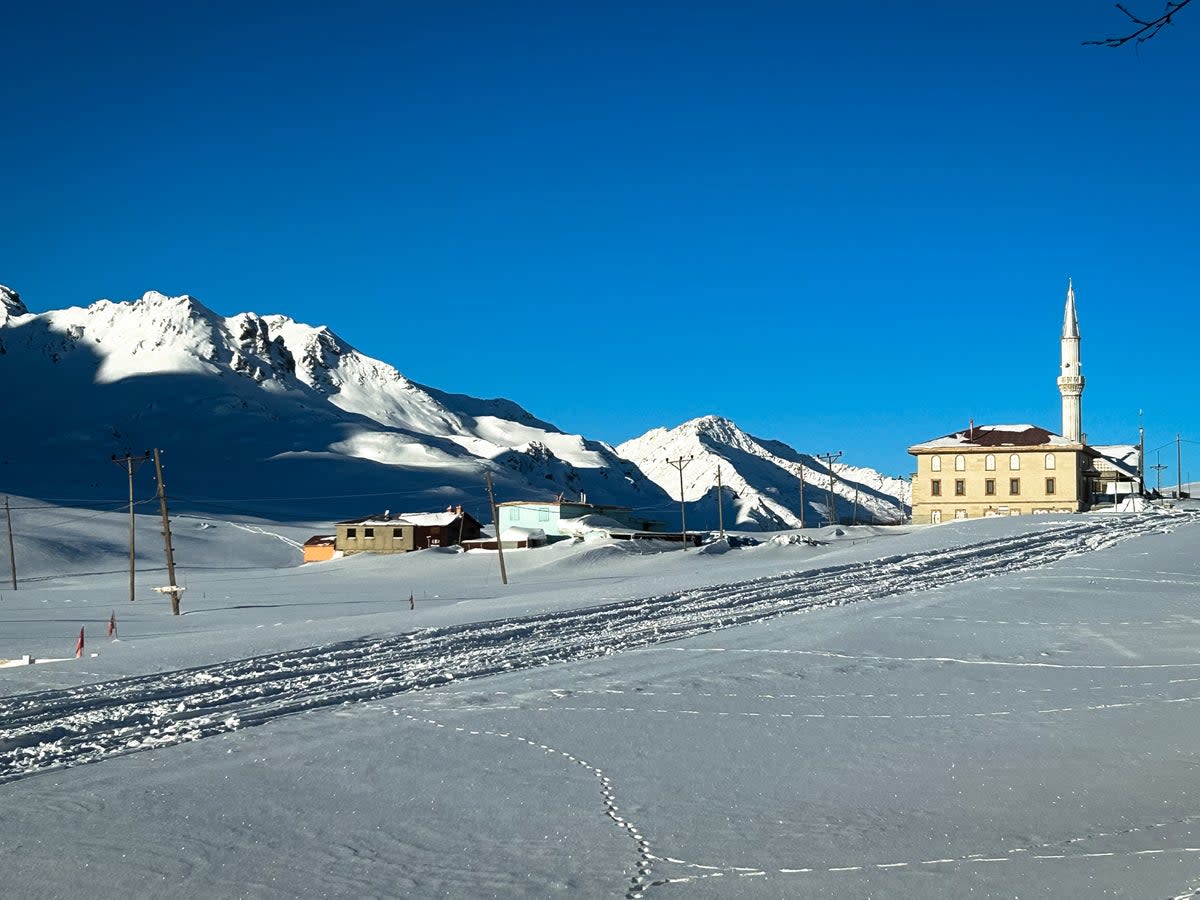
What makes the ideal skiing destination? High mountains and plentiful snowfall are obviously a must. Modern resorts and well-connected airports also help. Add in famously delicious local cuisine and a lively apres-ski scene, and you’d be getting close to perfection. Now, imagine you could have all that and pay less than £12 a day for your lift pass. Sounds too good to be true. Well, chances are you (or someone you know) may have already been there and just didn’t think of it as a skiing destination.
According to the UN World Tourism Organisation, Turkey was the fourth most-visited country in the world last year, behind France, Spain, and the USA. Yet the vast majority of the 50 million tourists who headed there in 2022 chose to travel during the summer. And admittedly, checking in for a flight to Istanbul with a snowboard bag in tow felt strange when I visited. But there was an icing sugar-like dusting of snow on the tarmac as we landed, and after a short internal flight to Kayseri (in the centre of the country), we stepped out into a full-blown blizzard.
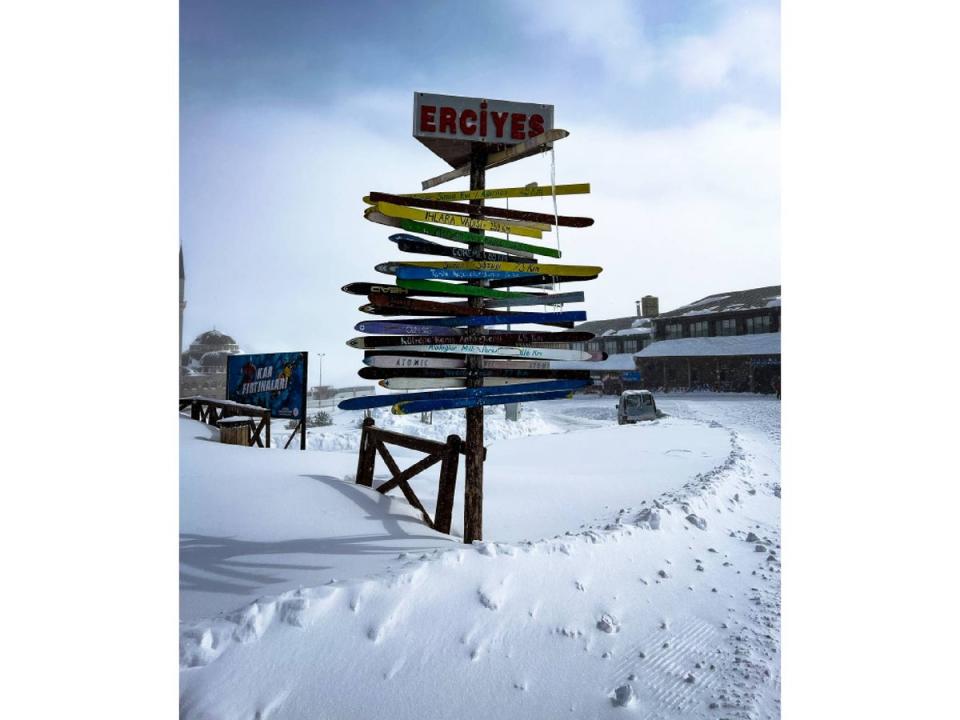
The temperature was several degrees below zero. Around 30 centimetres of snow had come down in the past 24 hours, and it showed no signs of abating. Luckily, a Mercedes minibus quickly whisked us away on the 40-minute drive to the nearby ski resort of Erciyes. There, a warm welcome awaited us from Erdem Kurt, founder of Ski Turkish.
Read more on skiing holidays:
A keen snowboarder with an infectious laugh, Kurt is an evangelist for Turkey’s potential as a winter sports destination. He set up his agency in 2018 to help spread the word. “We have mountains,” he said, while pointing out that Turkey has more than 60 peaks reaching over 3,000 metres, and that its highest, Mount Ararat, is taller than Mont Blanc. “And we also have snow, as you can see”, he laughed, pointing out the window.
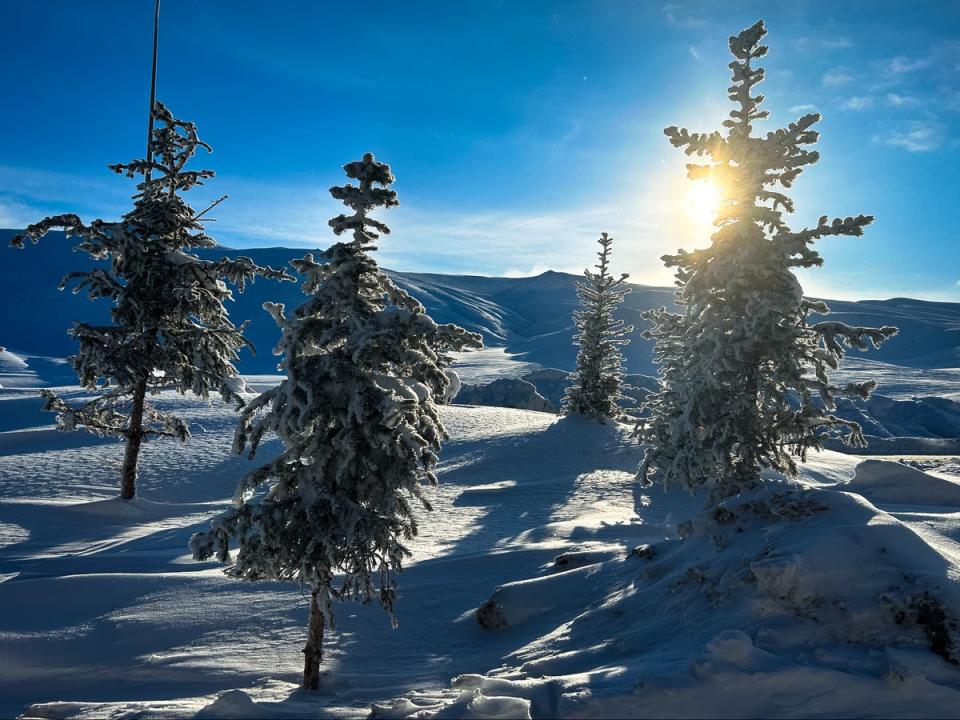
On top of that, Kurt explained that Turkey has a surprisingly long history of skiing. The first sets of skis were imported almost a century ago by Atatürk, the father of the Turkish Republic, as part of his drive to modernise the culture; Turkey fielded its first Winter Olympic Games in 1936. But for years, the sport remained the purview of the privileged few.
All that began to change in the early 2000s, however, around the time Kurt started snowboarding. With the middle classes growing and a construction boom in full swing, local governments and private investors started to invest in new skiing infrastructure. There are now around 40 ski resorts of varying sizes scattered throughout the Anatolian peninsula.
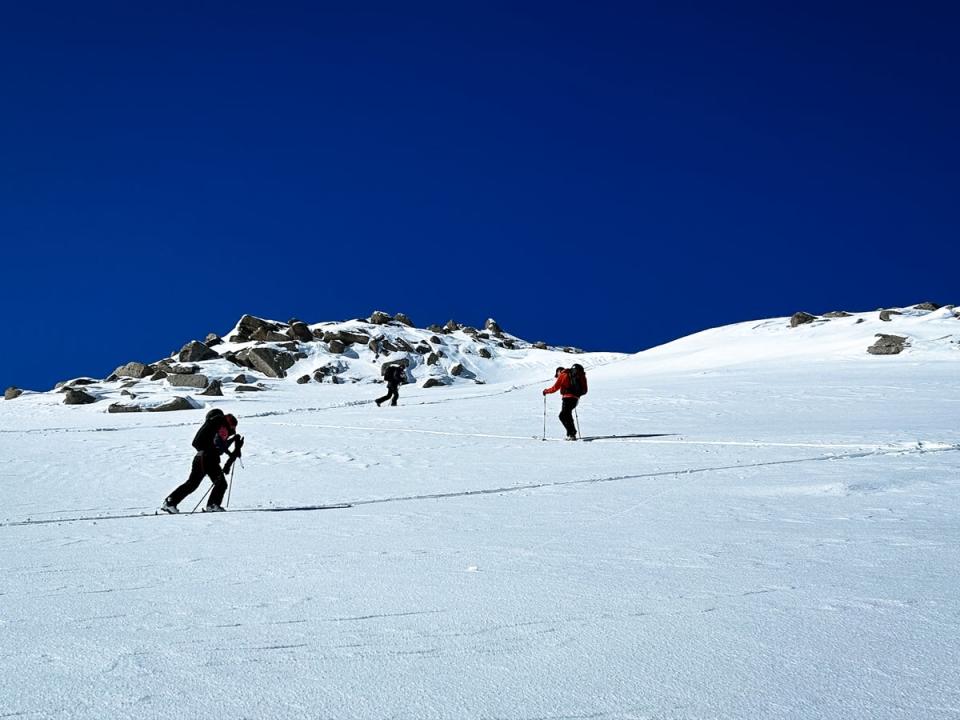
When the storm finally cleared the following morning, we got our first look at the jewel in the crown of this recent wave of resort construction. Arranged around three sides of a 3,917m-high extinct volcano with a jagged, half-open crater beneath its summit, Erciyes combines incredible natural terrain with the latest, Austrian-designed infrastructure.
“Since 2005 when this project started, Kayseri municipality has invested €200 million (£173 million),” the resort’s CEO, Dr Murat Cahid Cingi, told us over a cup of sweet Turkish tea. But he explained that it helped spread vital tourism income throughout the year, estimating that the project had already brought €100 million (£85,885) back into the local economy.
Erciyes is nothing if not impressive. It boasts 150km of pistes (the same number as the famous French village of Val d’Isere), linked by a network of 12, ultra-modern lifts – the highest of which reaches 3,400m (topping anything in Val Thorens, France’s highest resort). On that first morning however, those stats meant less to us than the fact that all of it was caked in 60cm of light, fresh, fluffy powder.
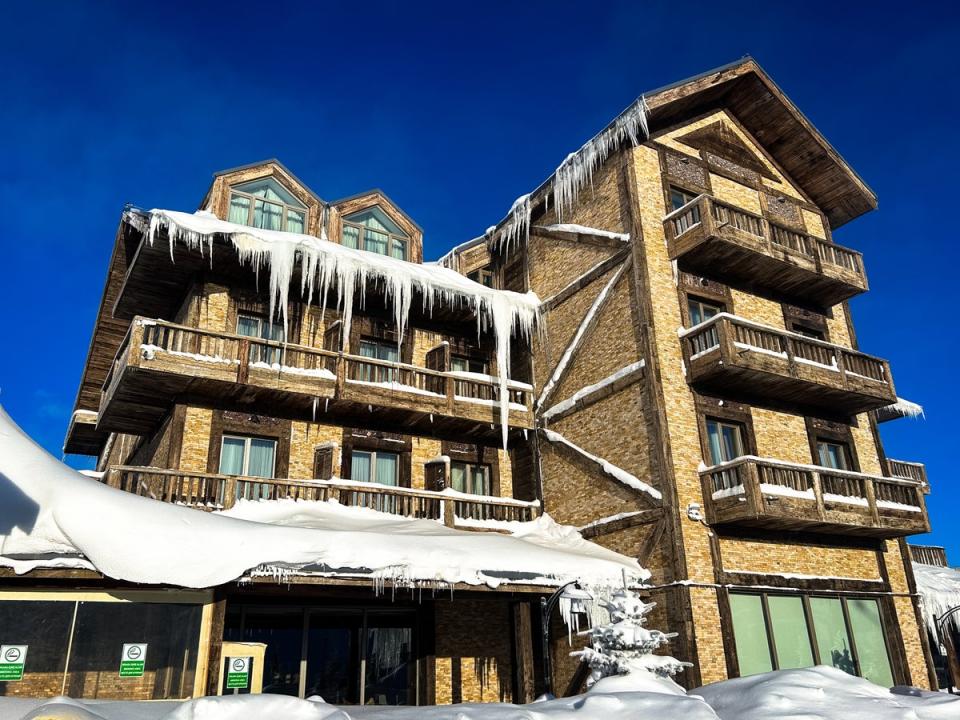
Our group spent the morning whooping and hollering as we tracked out the lines closest to the lifts. Although we raced to the gondola each time, keen to make the most of the snow, we almost needn’t have bothered. The slopes were uncrowded, and most of the locals stuck firmly to the beaten pistes. Aside from a Dutch group on backcountry skis, and some friendly Russian snowboarders (who explained that Turkey was one of the few countries still allowing direct flights from Moscow), we had the powder almost entirely to ourselves.
Lunch in a simple slopeside cafe provided a welcome change from the cheese and meat monoculture of the Alps: a lamb Adana kebab with a fresh tomato salad, followed by baklava and a Turkish coffee. Brewed thick with the grounds left in, it was roughly the same colour and consistency as a barrel of Brent crude and packed a similarly energetic punch – ideal fuel for an afternoon of further off-piste exploration. Perhaps my favourite item on the menu, however, was the bill, which came to 300 Turkish lira (about £8) a head.

Lift tickets were also ludicrously cheap. Ski Turkish had organised ours in advance, but a quick visit to the cabin confirmed that they were sold as singles for 35 Turkish lira (TL), about 95p each, or 250 TL (£6.80) for 14 rides, which would easily keep most skiers occupied for a day. Prices have since been bumped up for the 2023–24 season, so 14 rides now cost 430 TL, or £11.74. But that’s still peanuts compared to the £57 you’d pay for a day pass in Val d’Isère.
After a visit to Cappadocia, the nearby Unesco World Heritage Site famous for its fantastical “fairy chimneys”, we flew on to the east of Turkey and the second stop of our trip. With major mountain ranges on all four sides, Erzurum is Turkey’s answer to Innsbruck or Albertville. The mountain town is home to the country’s only ski jump, a vast ice hockey area, and, in the peaks immediately to the south of the city centre, several ski resorts. Ski Turkish had arranged for us to spend two days exploring the largest of these, Ejder 3200.
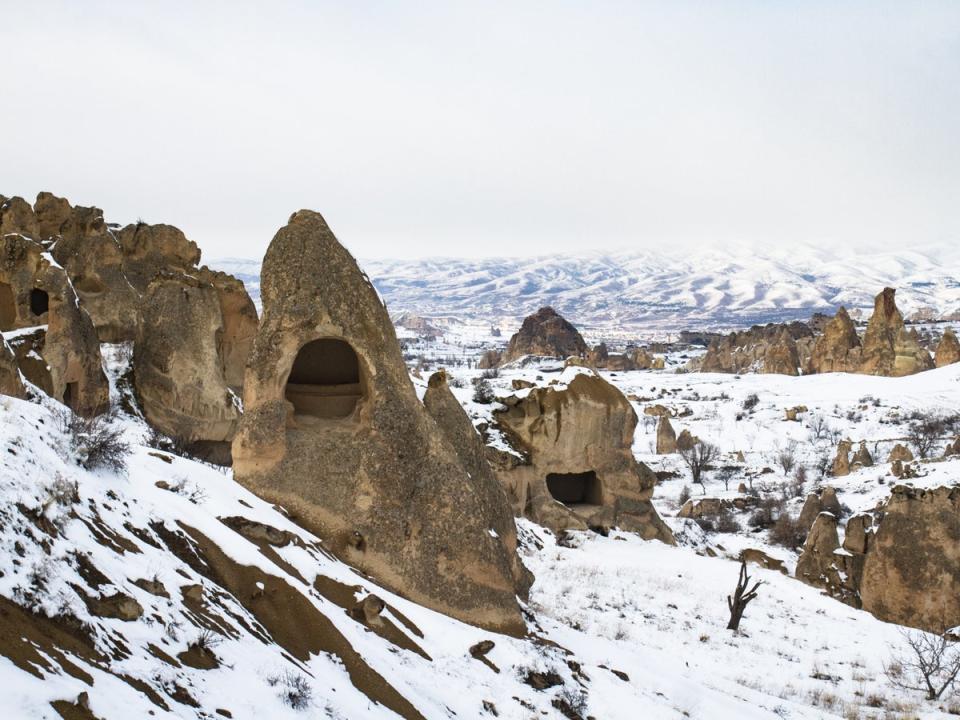
The snow had fallen thinner on the ground here, making off-piste a riskier, rockier, proposition. But once again, we were impressed by the quality of the pistes, the speed of the lifts, and the prices. The local cuisine too was exquisite – simple, unpretentious, and made from the freshest ingredients. As we tucked into yet another round of the all-you-can-eat caÄ kebapi skewers in the Koç CaÄ restaurant, near Erzurum’s 11th-century Çifte Minareli Madrassa, I was reminded of something Dr Cingi had said in his office at Erciyes. All the things that made Turkey appealing as a summer destination, he explained, are arguably better in winter without the crowds.
“Turkish food is famous around the world,” he said. “Historic tourism, cultural tourism, and of course, gastronomic tourism, these are very important to us. And now we combine these with European-standard ski slopes, at affordable prices. I think it has a strong appeal, no?”
When to go
The Turkish ski season, like that in the Alps, runs from December to April. Check the Erciyes or Ejder3200 websites for individual resorts and their opening dates.
How to get there
We flew with Turkish Airlines, which operates direct flights to Istanbul (the world’s busiest international airport) from more than 200 destinations including Heathrow, Gatwick, Birmingham, Manchester and Edinburgh.
Our trip was organised and supported by Ski Turkish, a specialised adventure travel agency which organised all our transfers.
Prices
Food
Lunch in the slopeside Gondol restaurant at Erciyes cost 300 TL per person (around £8), including an Efes beer, dessert, and a Turkish coffee. A plate of two skewers of caÄ kebapi, with salad and flatbread at Erzurum’s Koç CaÄ cost 85 TL (£2.30). The waiters keep bringing fresh plates until you ask them to stop.
Drink
Prices vary. At the apres-ski bar of the four-star Das3917 Hotel in Erciyes, we paid 192 TL (£5.50) for an expertly mixed negroni. At a slopeside bar in Ejder3200, we paid 60 TL (£1.60) for a can of Efes beer.
Accommodation
Again, prices vary. Double rooms at the four-star Das3917 in Erciyes cost from 7,800 TL (£213) a night, but there are cheaper options. The Erciyes Hill hotel, at the foot of the lifts, has rooms for 4,250 TL (£117) a night. If ski-in, ski-out isn’t a priority and you’re happy to stay in town, there are rooms and rental apartments in Kayseri’s historic town centre, just 40 minutes from the slopes, for as little as £22 a night.
The same applies in Ejder3200. We stayed at the Snowdora Hotel at the foot of the slopes, where rooms cost around 4,000 TL (£110) a night. But if you’re happy to stay in Erzurum, a 25-minute drive away, you can find double rooms and rental apartments for as little as 875 TL (£24) a night.
Lift passes
Lift passes at Erciyes are sold as single rides. During winter 2022–23, a single ride cost 60 TL (£1.64) for an adult or 45 TL (£1.23) for children under 12. Alternatively, 100 rides (roughly equivalent to a week’s lift pass) cost 2,250 TL (£62) for an adult or 1,650 TL (£45) for under-12s. Although their 2023–24 prices haven’t been published online yet, prices at Ejder3200 were comparable during this visit.
Ski rental
Prices vary depending on the shop and length of rental, but ski rental at both Erciyes and Ejder3200 is available from around 400 TL (£11) a day.
Read more on Turkey travel:


